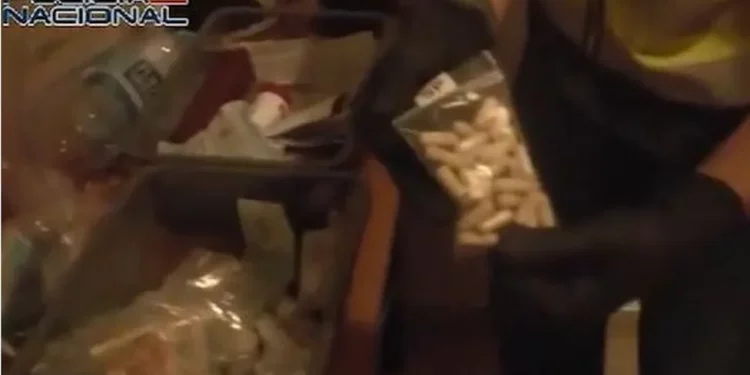Spanish law enforcement authorities have arrested 18 individuals allegedly linked to a shamanic organization accused of selling hallucinogenic drugs. The group reportedly conducted organized rituals involving banned psychoactive substances such as ayahuasca and toad venom, as well as mescaline and poisonous secretions from tree frogs.
The organization, which described its locations as “epicentres for inner evolution,” had a presence across Spain and extended its activities to 10 other countries in Europe and Latin America. The police investigation was triggered by online advertisements promoting neo-shamanic rituals, which claimed to offer improvements in physical and mental health through the consumption of these substances.
A significant breakthrough in the case was the discovery of the organization’s headquarters in the Colombian jungle. This site was purportedly equipped to prepare various products, including ayahuasca concoctions.
In a major raid in Madrid, police officers confiscated over 60kg of ayahuasca and about 1kg of mescaline. Additionally, they seized €24,000 in various currencies. Footage from the police raid revealed the discovery of substantial sums of money, pills, and a room set up with multiple beds.
Among those arrested are a doctor and his partner, who allegedly oversaw the consumption of these hallucinogenic drugs while posing as medical professionals. The organization’s leader, regarded as a spiritual figure by his followers, was also charged posthumously with sexual crimes and encouraging illegal immigration, following his death during the joint investigation with Spain’s national tax agency.
The detainees face charges related to conducting profit-making rituals using banned psychoactive substances, with some also accused of human trafficking, workers’ rights violations, and smuggling.
The arrests highlight a growing concern over the illegal use and distribution of hallucinogenic substances under the guise of spiritual or shamanic practices. This case also sheds light on the international reach of such operations, with activities spanning from Belgium and Ireland to Mexico, Colombia, and Turkey.



























